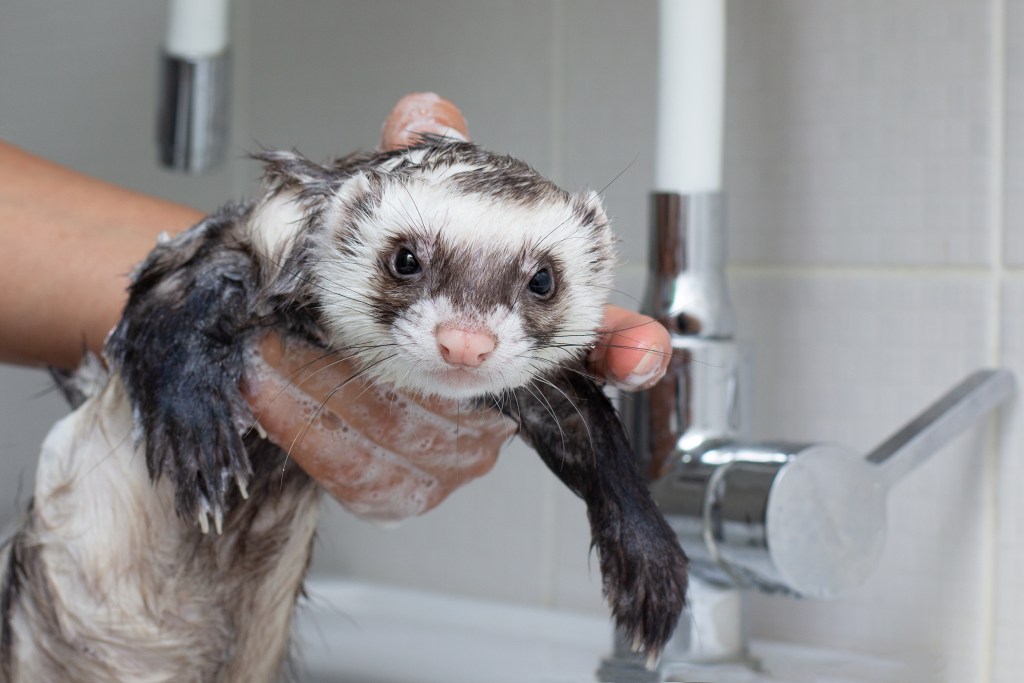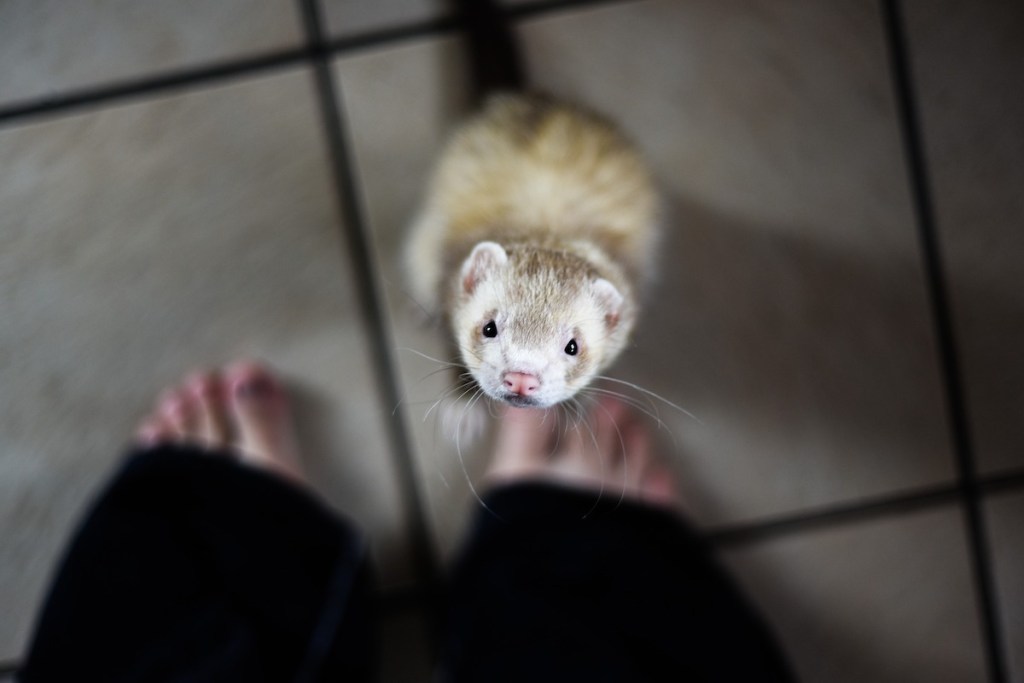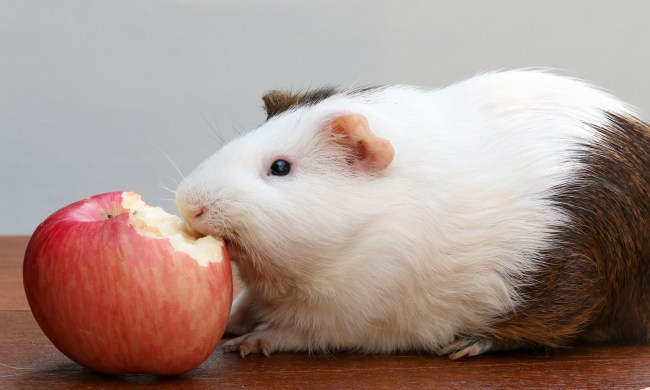Ferret moms and dads know their pets can get a bit musky (to put it nicely). It’s one of the facts of life when your family includes this cute slinker. But you can develop a cleaning routine to keep both you and your animal happiest. Surprisingly, this won’t include frequent bathing — instead, other regimens will help you keep the smell at bay while not introducing any other issues. So, can you bathe a ferret? We’ll walk you through it.
Why do ferrets smell?
Scent glands! Actually, almost all mammals have them, even us. Ferrets in particular can get pretty pungent, especially if they haven’t had any of their anal glands surgically removed and if they haven’t been neutered. Your pet mostly uses these to mark his land, though that doesn’t mean he’s feeling particularly territorial. You can take a few steps to reduce the smell (more on that later). No matter what you do, though, he will have a little bit of a whiff about him. Most likely, you’ll just get used to it.

How often should you do a ferret bath?
When we smell bad, we take a shower and put on some deodorant. This doesn’t work for our furry friends, though. Remember, our pets don’t typically take showers in the wild. While a quick dip in the stream might be on the agenda, soap and shampoo are human inventions. Instead, your little ferret has evolved oils on his skin to keep clean, and he probably gives his fur a lick now and then. That’s why bathing can do more harm than good. And not just for his dry and itchy skin — it’ll increase the smell, too (trust us, you don’t want this). We’re not telling you to skip the water entirely, as you should give him a dip every few months, maybe four times per year.
Where do you bathe a ferret?
As you’d do with a baby, you can stick that animal into the sink. Bring special shampoo (try to find one just for him, but kitten shampoo also works), a soft cloth, and a drying towel. We’ll be honest, your pet might hate this. Ease him into the process and make sure to keep lots of treats on hand. A few other tips about the water: not too deep or too hot. While you might like a scalding shower, that will further irritate his skin. Find a gently warm temp and don’t fill the sink so high that he’s submerged, which will increase his anxiety.

What should go into your cleaning routine?
Instead of his bath, you can apply a few other quick cleaning methods to keep the smell down and his happiness up. For starters, while we don’t recommend bathing too often, we do encourage frequent cage cleaning. Be sure that he goes to bed on a clean cloth, his toys are freshly laundered (unscented), and his litter is scooped daily. Sometimes your home smells because his home smells.
Additionally, while a full bath is not advised, his ears and teeth do need regular attention. Both should be cleaned once per week or more often if you spot any issues. Lastly, brushing your ferret’s coat often acts something like bathing, without introducing any of the unwanted drawbacks. Get into good habits around these measures to keep your home smell-free.
How else can you prevent odor?
If you’ve gone through all these steps and still have an issue, it’s time to talk to the vet. Get your ferret a once-over and discuss options, like neutering, that will decrease the smell. Go through his diet to make sure it’s not causing any unfortunate digestive issues (you’ll both benefit when he’s regular). Your animal doctor will work closely with you to identify any issues. Even if nothing will prevent the smell entirely, research pet-safe air purifiers or air filters that will make things more pleasant for you.
Most of all, keep in mind that your ferret friend doesn’t know he smells. In fact, he might think it makes him alluring. Consider designating a specific room or area of the house the “ferret zone” to keep the smelliness in one spot. If you’re dealing with a particularly scent-sensitive household, though, think carefully before bringing him home. We can’t stress this enough: Even with surgery, proper cleaning, infrequent baths, and air fresheners, he will still get fragrant.



